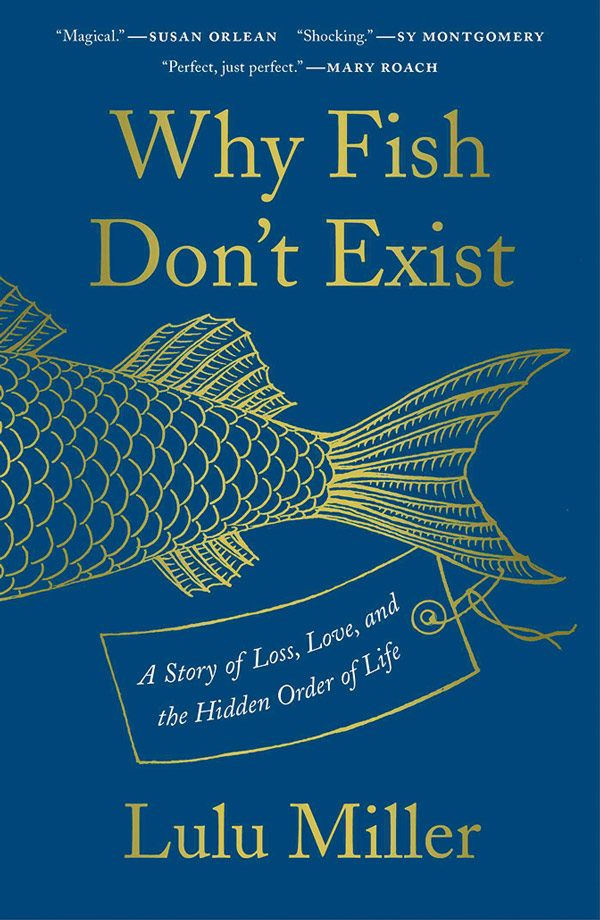
Why Fish Don’t Exist:
This page-turning debut by Lulu Miller ’05, part memoir and part science adventure, offers satisfyingly thought-provoking responses to these compelling questions. Seeking purpose and significance in her own life, Miller became intrigued by the extraordinary persistence that taxonomist David Starr Jordan displayed when he picked up and carried on after the 1906 San Francisco earthquake destroyed his life’s work.
As she searched for clues in Jordan’s voluminous writings, Miller unearthed some startling and disturbing truths in the complicated life and legacy of the man who was the founding president of Stanford University, who discovered a fifth of the species of fish known in his day, and who was also a prominent eugenicist.
“This book is a culmination of so many of the skills I learned at Swarthmore,” says Miller, who is also co-host of NPR’s Radiolab. These skills include her love for primary sources, her dedication to working iteratively, and her eye trained to “look under the lines we draw over nature (be it religion or science) for the Real Stuff.”
Why Fish Don’t Exist (Simon & Schuster, 2020) unveils the exhilarating, if slightly unnerving, freedom of embracing chaos and blinking away preconceptions to see the world, and ourselves, through a fresh perspective. It was rugby and improv comedy at Swarthmore, Miller says that “taught me to embrace the chaos, of humanity and the world, and meet it with creativity — to see it as a dance partner instead of an adversary.”